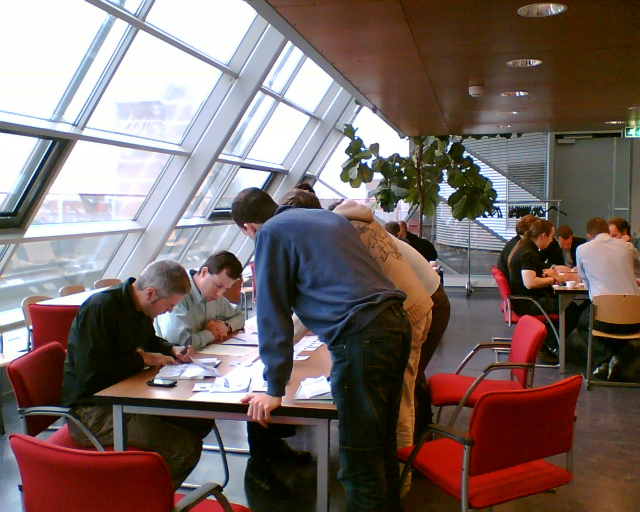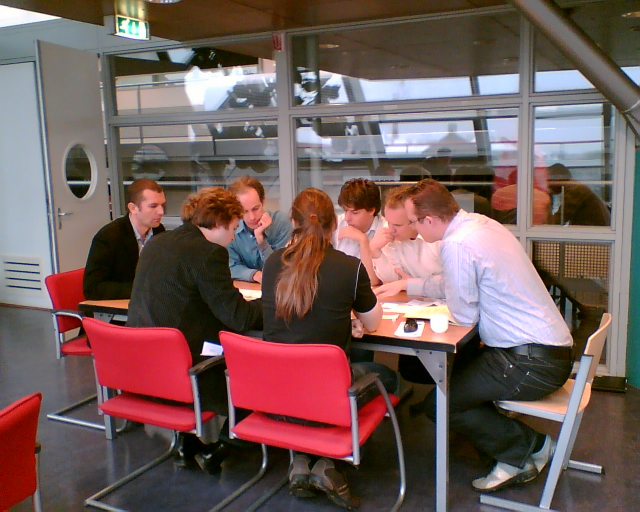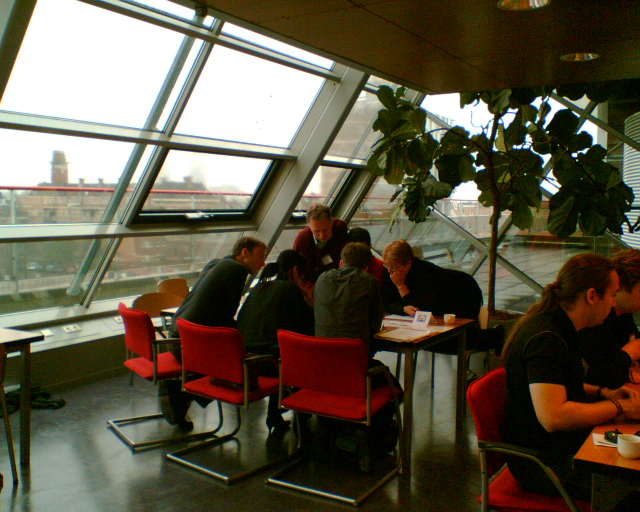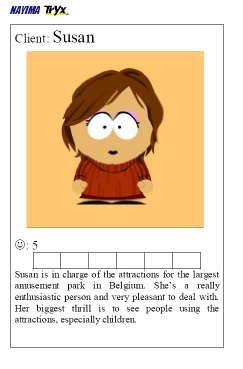 A lean evening
A lean evening
Yesterday evening I was back in Paris to give a presentation about “Lean and the Toyota Way“. As I walked from the train station to the offices of Zenika, I came across a large billboard announcing “Dorothy et le magicien d’Oz”. It’s reassuring to see that the fairytales are alive and well.
My friends at Zenika had arranged a nice place and provided some fine drinks and snacks. More than 100 people showed up, among them many of the French Agilistas. I chatted for a while with them about agile, lean and the upcoming XP Days France.
And then it was time to start the presentation. The auditorium was almost completely full.
 The Toyota Way
The Toyota Way
The presentation explained the 14 principles of The Toyota Way of Managing and the many parallels with Agile methods. As I go through the principles I illustrate them with stories from projects I’ve worked on. Each time I do this presentation it changes, as I learn more and discover more great ideas in Lean.
There were some great questions and discussions:
- “What can I do to introduce more Lean and Agile in my organisation?” – Apply the principles and values, set an example. Support and collaborate with others who apply these values.
- “Are there any incompatibilities between Lean and XP?” – None that I can see.
- “For Agile and Lean transformations to succeed we need support from management and workers. Often, we only have support from one of them.”
- “Lean coaches are very direct, not afraid of saying it as it is to management. Is that something they’re taught?” – It does seem so, judging from the documentary Kenji Hiranabe showed at Agile 2008, where a Lean coach almost made a factory manager cry by bluntly pointing out all the flaws in the production line.
- “Does Lean make you lose weight?” – A Gemba Walk a day helps 🙂
Unfortunately, I couldn’t stay for drinks afterwards because I had to rush to catch the last train back to Brussels. The next day I had another team to coach, another opportunity to “Develop exceptional people and teams”, the tenth principle of the Toyota Way.
I hope to see the participants again soon. See you at the XP Days France or a Zenika training session.
A bientôt!
What others say
Jean-Claude Grosjean summarizes the principles and contrasts them with the 7 principles of Lean Software Development and Agile.
Nicolas Martignole wrote a very extensive report on each of the principles and relates Lean, Scrum and XP.
Claude Aubry thinks “Obeya” is more beautiful than “War Room”. I fully agree. He currently tries to recreate the Obeya experience for an offshore team.
Thank you for the rapid and very detailed feedback!






